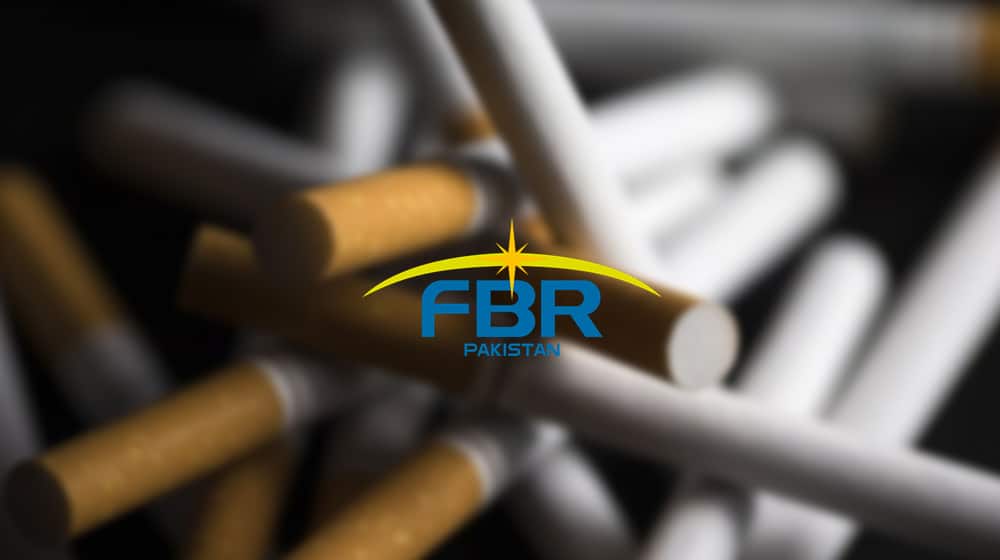The Federal Board of Revenue (FBR) has failed to install the Track and Trace system in the tobacco sector despite the phenomenal success of the Track & Trace System in the sugar industry.
The Track & Trace System was a landmark initiative aimed at much-needed improvements in sales tax collection and digitization in the four key sectors (cement, sugar, fertilizer, and tobacco) of the economy.
High-level sources told ProPakistani that the FBR is likely to re-extend the time period for the installation of the Track and Trace system in the powerful tobacco sector.
It was also learned that several multinational companies have engaged retired officials affiliated with the Pakistan Muslim League-Nawaz (PML-N) government as interlocutors on their behalf. After vigorous lobbying, they had been able to convince the Minister of Finance to extend time in this regard.
Several meetings were held between the industry and the tax agency at the FBR last week, and the latter has taken a firm stance to get the program implemented on account of its vital importance to the national economy in connection to the endemic tax evasion and under-reporting in the sector.
The FBR had witnessed an uptick of 33 percent tax collection and reporting of an additional 1.7 million tons of the six million reported during the previous crushing season in the sugar sector alone. It was expected that similar results would be achieved here as well.
Subsequently, the FBR had informed the tobacco industry of the deadline of 20 May but no local company has installed the system whereas the multinational companies, including Pakistan Tobacco and Philip Morris have installed the system only on a few lines, the sources revealed.
They said that local companies do not want to bear the expenses of installing Track and Trace and had filed a petition in the Peshawar High court in this regard. As per the law, tobacco companies cannot remove products from factory premises without tax stamps but interestingly, this parliamentarians-backed industry is yet to fully apply the stamper machines in their factories.
The Federal Tax Ombudsman (FTO) recently dubbed the tobacco sector ‘a known hub of massive evasion of duty, taxes, and illicit trade’ in its report. The sector had contributed around Rs. 130 billion as Duty and Taxes during 2020-21, despite which the FTO’s internal analysis also indicated massive tax evasion at the GLTs stage.
This was evident because, as per the FBR’s findings, there was an alarming gap between the tobacco produced (according to the data maintained by the Pakistan Tobacco Board) and the tobacco consumed in declared cigarette manufacturing (as per the tax record).
The FTO has recommended that the FBR conduct a yearly analysis of the cigarette tobacco produced in Pakistan vis-a-vis the declared consumption of tobacco by all the cigarette manufacturing units from 2019 to 2020 onwards to gauge the loss of the revenue caused by the tobacco that was unaccounted for.
As directed by the International Fund (IMF), the FBR had developed a plan to implement the Track and Trace system and had successfully inaugurated the system in October 2021 on one of the lines. Capacity issues within the FBR had allowed the industry to exert its leverage through the new government. However, this is not understandable in light of Pakistan’s dire need for revenue generation and commitments with the IMF.
The sources added that if FBR has given time to the tobacco sector again, then the implementation of this Track and Trace system can be delayed in other sectors, including sugar, cement, and fertilizer.

























